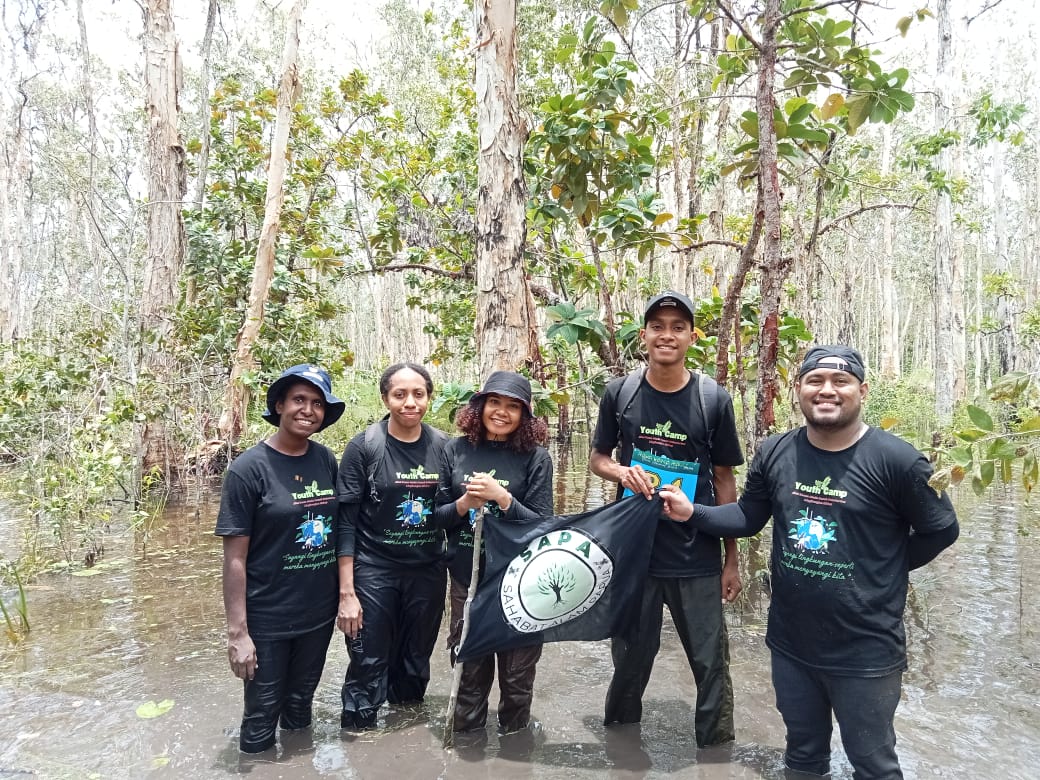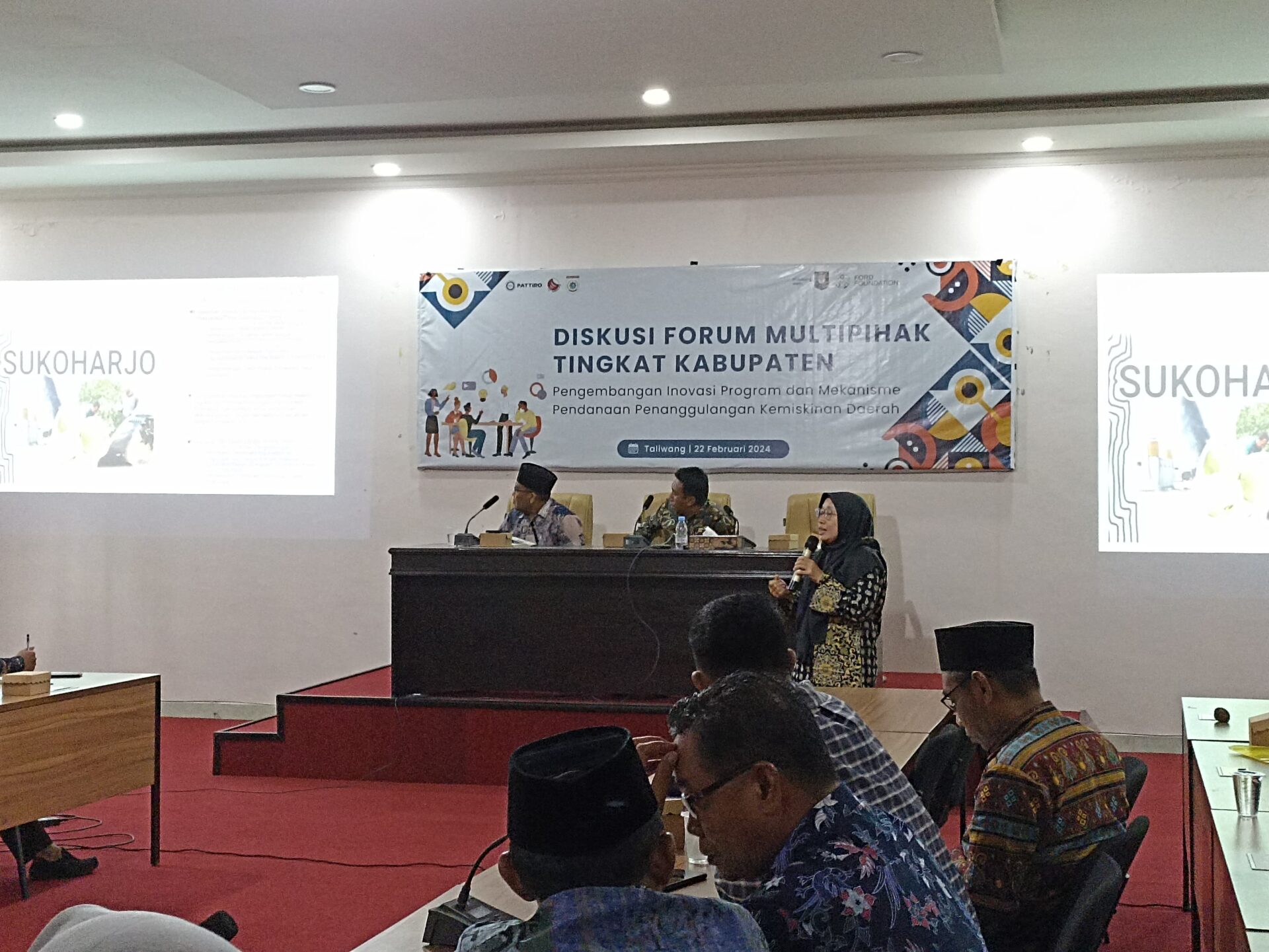
The Regional Center for Research and Information (PATTIRO) questions the government’s commitment to the Open Government Partnership (OGP) movement because until now the government does not yet have a clear and detailed action plan (reaction) to support the open government movement. In addition, the government’s commitment to the OGP movement is not serious and is still limited to “lips-service”. This can be seen in the Decree of the President of the Republic of Indonesia number 13 of 2014 concerning Determination of Indonesia’s Membership in the Open Government Partnership. The content of Presidential Decree 13/2014 is too simple without clear and detailed directions on how and what the government should do with the establishment of OGP membership.
In fact, President Soesilo Bambang Yudhoyono (SBY)’s keynote speech when opening the OGP Asia Pacific Regional Conference early May 2014 conveyed four important things related to the OGP movement. The four important things are; first, the OGP movement can build collaboration between the government, communities and CSOs (Civil Society Organizations) on the basis of trust; second, the government needs to build a wider space for public participation; third, the government needs to facilitate and strengthen the capacity of communities and CSOs so that they are able to participate actively; and fourthly build a culture of community participation and involvement. These four presentations by the President should serve as a basis for detailing and explaining the direction of the government’s reaction to the OGP movement.
Regarding the reaction to the OGP movement itself, actually the CSO core team of OGP (which consists of PATTIRO, Transparency International Indonesia (TII), Indonesian Forum for Budget Transparency (FITRA), Indonesian Center For Environmental Law (ICEL), Aceh Anti-Corruption Movement (Gerak Aceh) ), JARI Central Kalimantan, and the Makassar Legislative Monitoring Committee (KOPEL) Makassar) together with other CSOs who are members of the FOINI (Freedom of Information Network Indonesia) coalition have prepared and submitted a 2014-2015 OGP action plan to the Government to address the issue of information disclosure. However, until now the discussion of the action plan has not been resolved with the government. Even though there are many important things in this reaction that can be done to strengthen the government’s commitment to the OGP movement.
PATTIRO also asked the new government that will be elected and start governing in October 2014, to continue and strengthen the commitment that has been built on the OGP movement. As a form of commitment that the Indonesian government is a government that is transparent, accountable and responsive to public services provided to the community, the new government may not take a step back in terms of information disclosure and participation space for the community.
OGP Asia Pacific Regional Conference
The OGP movement, which was launched in 2011, is a movement to encourage open government so that it becomes more transparent, accountable and responsive to public services provided to the community. Indonesia together with Brazil, Mexico, Norway, the Philippines, South Africa, the United Kingdom and the United States of America are the eight countries that initiated the OGP movement. Currently, 64 countries have joined the OGP movement and the OGP Annual Summit in London, UK at the end of October 2013 has appointed the Government of the Republic of Indonesia to become chairman of international OGP until the end of 2014.
One of the important milestones for Indonesia as chairman of OGP was the implementation of the OGP Asia Pacific Regional Conference (The OGP Asia Pacific Regional Conference) on 6-7 May 2014 in Nusa Dua, Bali. This conference aims to explore new potentials and revive efforts to support wider implementation of transparency, good governance, and community participation on the issue of public services provided by the government. Apart from being attended by representatives of the governments of OGP member countries in the Asia Pacific region, the conference which was opened by President SBY was also attended by representatives of civil society organizations (Civil Society Organizations/CSOs).
Prior to the conference, on May 4 2014, 183 CSO representatives from 31 Asia Pacific countries who attended the conference met to discuss important issues related to the OGP movement. The meeting resulted in a Joint Communiqué which described the wishes and expectations of CSOs for the OGP movement. The important point of the joint communiqué is that CSOs highly respect and support the spirit of the OGP movement as an effort to create an open government, involve civil society and provide space for reformers and innovators as key actors in democracy, good governance and development.
After considering the progress and achievements of the OGP movement thus far, the CSO assesses that the chairman, co-chairman, the Steering Committee and member countries of the OGP movement need to consider and implement the following three points. These three things are first, there is an important need to build, expand and consolidate the space for community participation. Second, the formulation of the 2015 post-MDGs agenda as a continuation of the MDGs program and the basic need to combine good governance. Third, the need for the OGP movement to build and maintain community participation mechanisms and standards to fulfill the values of the OGP movement.
In several democratic countries, space for public participation is still denied or severely limited by the government. For this reason, the space for community participation must be guaranteed and socialized in all member countries of the OGP movement through the relevant legal framework, institutional arrangements and decision-making practices. Therefore, CSOs will encourage member countries of the OGP movement to :
- extend open data programs for both government and private sector data;
- ensure the provision of communication infrastructure to vulnerable groups, namely persons with disabilities, indigenous peoples, and women;
- enact laws that recognize freedom of expression, association, assembly and freedom of information, protect whistleblowers and remove restrictions and controls on civil society organizations and ensure the implementation of these laws; And
- enact laws that provide opportunities for civil society to participate in decision-making processes and monitor their implementation.
According to PATTIRO, as chairman of the OGP movement Indonesia should be able to play an important role in influencing OGP movement member countries to implement the points above. Because Indonesia already has sufficient tools to support the openness movement, one of which is the existence of law number 14 of 2008 concerning Public Information Disclosure (UU KIP) whose position is “strong enough” to encourage information disclosure. In addition, the Indonesian government has also committed to openness initiatives through the existence of internet-based sites (webbases) such as Lapor, PETA, One Indonesia, and internet information systems provided by ministries, agencies and several local governments. This achievement can be disseminated by the Indonesian government to member countries of the OGP movement.
However, the tools and facilities already owned by the Indonesian government still require improvement commitment. The government’s commitment to improve is to improve the quality of information provided and to improve internet infrastructure in Indonesia. The quality of information provided by the government is still limited to matters of a normative nature, while much important information related to the budget and public services is still not available on a regular basis according to the provisions of the UU KIP.
So far, the government has only provided essential information regarding the budget and public services if there is a request from the public. Likewise, internet infrastructure does not yet reach all parts of Indonesia, even though the information disclosure system provided by the government is generally internet-based (web-based). How can the community reach this information if the infrastructure is not provided.
Jakarta, 26 Mei 2014
Sad Dian Utomo | PATTIRO Executive Director
saddian@pattiro.org | 0812 800 3045
Contact Person:
Ari Setiawan | Information Disclosure Specialist
arisetiawan@pattiro.org | 0857 1188 3817




